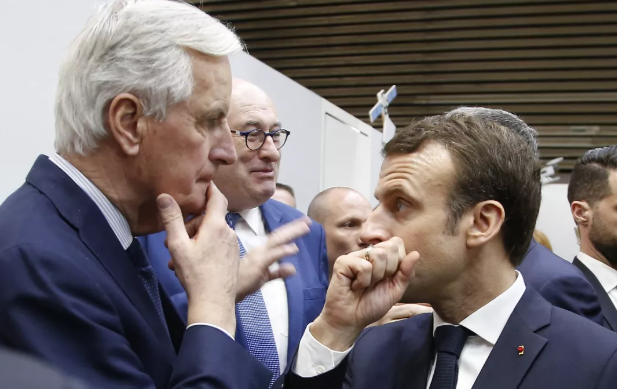Virendra Pandit
New Delhi: With the united Opposition, furious at budget proposals, toppling Prime Minister Michel Barnier within two months of taking power in Paris in September, French President Emmanuel Macron’s own political future may become uncertain ahead of his potential re-election bid in 2027.
As Donald Trump re-enters the White House for a second term as the US President in January 2025, the tremors of this French political upheaval, a first in the last six decades, will be felt throughout Europe as the ongoing Russia-Ukraine war enters the third year in February 2025, the media reported on Thursday.
Barnier, 73, earned the dubious distinction of being the oldest French premier serving the shortest term of less than 16 weeks in office. French lawmakers ousted him on Wednesday in a no-confidence vote just three months into his tenure, plunging the largest Catholic country in the world into political uncertainty.
Angry lawmakers’ vote, passed by 331 members of the Assemblée Nationale (National Assembly), exceeded the 289 votes required and marked the first successful no-confidence motion in France in over six decades. It has left France, Europe’s second-biggest economy after Germany, in political disarray, with no clear path visible ahead for its budget amid heightened financial market concerns.
Using his power to dissolve the parliament and call for snap elections, President Macron, whose party faced a defeat in the European Parliament elections in June, ordered the snap poll, in the hope of strengthening his fortress at home. However, this trick failed and the Left-wing coalition, Nouveau Front Populaire (New Popular Front or NFP) won the most seats (182), followed by Macron’s centrist Ensemble alliance (168), and the far-right Rassemblement National (RN) (143).
Thus, the fragmented National Assembly forced lawmakers to cobble together a complex coalition, pushing President Macron to appoint Barnier as the PM to lead a minority government.
His proposed budget for 2025, including wide-ranging spending cuts and unprecedented tax hikes to address a projected deficit exceeding six percent of the GDP, faced strong opposition from both far-right and left-wing factions.
Alarmed at the fragmented Opposition uniting, PM Barnier tried to bypass Parliament to pass budget legislation in what he thought would be a decisive move to tackle France’s soaring deficit and debt. However, this action catalyzed the National Assembly’s no-confidence motion, leading to his government’s downfall.
Interestingly, the no-confidence motion was introduced by an unexpected alliance between the far-right National Rally (RN), led by Marine Le Pen, and the Left-wing coalition NFP, amply underscoring the fractured nature of French politics.
His government’s collapse came when France was grappling with a growing budget deficit and debt levels exceeding European Union norms, compounded by two years of stagnant economic growth in the wake of the ongoing Russian-Ukrainian war.
Globally, France’s leadership is also under strain. Trump’s ensuing second term in the United States and Germany’s internal political struggles have weakened the European Union’s cohesion, potentially threatening France’s strong support for Ukraine.
For Macron, the failed gamble of calling a snap election represents a significant blow to his authority.
The outgoing PM, Michel Barnier, has been a member of the far-right political party, the Republicans, since 2015. He is known as a pro-European and Gaullist conservative, a stance rooted in the political beliefs of Charles de Gaulle, the French Resistance leader during the Second World War (1939-45). He has advocated stricter immigration controls from outside Europe, expanded prison capacity, and mandatory minimum sentences for certain crimes.
Earlier, he served as minister of the environment, European affairs, foreign affairs, and agriculture, and gained international recognition as the European Union’s chief negotiator during Brexit in 2016.
In September 2024, following a snap poll, President Macron appointed Barnier as the PM, making him the oldest politician to assume the role under the Fifth Republic.

